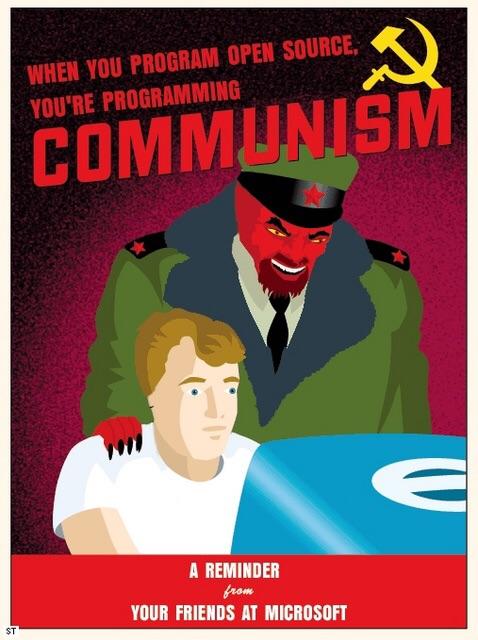ShiningWing
she/her
- 2 Posts
- 46 Comments
 4·7 months ago
4·7 months agoIt really sucks how often pirates have to resort to emulating inferior Switch versions because the PC versions have uncracked Denuvo
 21·7 months ago
21·7 months agoThis is true but also it’s always morally correct to pirate Nintendo games
It does very much bug me though how, unsurprisingly, there’s plenty of people on reddit and Twitter acting like piracy is the only reason one would use Yuzu, as if it isn’t such a huge value to be able to run games you paid for at a more playable framerate and better resolution than Nintendo’s outdated hardware
Like, hell, Tears of the Kingdom having such awful performance drops on official hardware even compared to BotW is basically the big reason I haven’t bothered picking it up
 8·7 months ago
8·7 months agoNot really sure who would continue developing it though, it would have to be someone who already knows enough to do so but isn’t currently contributing, because the current developers almost certainly wouldn’t risk continuing to do so if they lose
(who btw farms montages in low rated btb games)
Typical, so many of the people who complain about the existence of SBMM in games are people who want to be able to constantly stomp players who are worse than them (when people complain about “not wanting to sweat all the time”, this is pretty much guaranteed to be the actual reason)
While I don’t doubt that Halo and CoD have flawed matchmaking, people usually use those to say that SBMM as a whole is a bad thing, or even that it’s “ruining gaming”, when it exists for good reasons and benefits a lot of games
You rarely see people complain about it in fighting games for example, usually when people do it’s because the developers of a given game have designed an original system that does a bad job at actually matching skill, when a typical Elo-style system would’ve worked far better

 12·8 months ago
12·8 months agoThis is the most hilariously bad faith interpretation of a comment I’ve ever seen on the internet, congratulations
They tend to justify the view by only ever bringing up the dangers of nuclear power, and arguments about nuclear waste (ignoring the fact we keep getting better in both these areas).
I’ve even seen people like that on here before when the topic’s come up too, it’s an annoyingly common sentiment

 11·8 months ago
11·8 months agoYes, each airbag vest costs money to produce, that’s why you pay for them, and why it’s shit that this company is charging an ongoing subscription that actively disables them when you miss a payment, because the vests they’ve already sent out don’t cost them any money to maintain
And yes, each copy of a backported security update doesn’t cost meaningful amounts of money, but you’re not paying for just a copy of one update, you’re paying for an ongoing service that provides constant backports of security updates for loads of packages (and if you’re a personal user, as other people mentioned, you don’t even have to pay for that!), those backports are not free to maintain, companies charging for extended support that is nothing new, especially when they’re long term support distros targeting enterprise

 191·8 months ago
191·8 months agoThis comparison makes no sense, a motorcycle airbag vest doesn’t require any effort on the company’s part to keep working, but backporting security fixes absolutely does
 1·9 months ago
1·9 months agoThis isn’t a counterpoint though?? That doesn’t really have anything to do with SBMM, and if anything seems like it supports its existence because this way you get matched with other players in that kind of situation, instead of being thrown into unbalanced matches against the people who have loads of time to spend practicing
Like, I’m not really sure what this has to do with my comment at all and I’m just really confused
 12·9 months ago
12·9 months agoYou asked how SBMM is good, so I’m gonna write way too much to answer why I think that
SBMM is important for games with matchmaking because competitive games are generally both more fun and more fair when players are matched with other players around their current skill level, people generally don’t like when a game is just rigged from the start and they can’t contribute anything because of it
It’s pretty bad for people learning and improving too to not have it, because it’s a lot harder to learn from a loss if you just get blown out immediately by someone so far above your level, as opposed to someone closer to your skill level where it’s easier to tell what they’re doing differently compared to you
It’s also a weird complaint to say that the game “punishes” you for sub-optimal behavior and playing casually, because what really happens is that you maybe lose a few matches before the game realizes you’re playing worse and puts you around that level, meanwhile if you don’t have SBMM you will always have a pretty good chance of being matched against someone trying as hard as they can to win and optimizing their gameplay and equipment (this has been a common complaint about Destiny when they have removed SBMM in PvP in multiple instances, because it lead to it being basically impossible to play casually because basically every game is full of pubstompers)
If CoD’s implementation doesn’t work like I described, then that’s a CoD problem, not an SBMM problem, there are loads of games with SBMM where people are generally happy with it (like Splatoon, or most fighting games)
It’s also worth pointing out that despite a lot of people thinking SBMM in CoD is some recent thing, it’s actually been a thing for most of its existence, same with early Halo
And as far as being casual and “chilling out and having fun” goes, you also have to keep in mind that you don’t actually know how seriously your opponents are playing at any given moment, it could very well be the case that they’re also not taking it too seriously and just seem like they’re “tryhards” because they happen to be a lot better, a problem that’s improved by SBMM rather than made worse because you’re ideally (as in, in games that do it well, not as sure about CoD) less likely to go against people like that if you’re not actually on their level
 4·9 months ago
4·9 months agoI’m currently on break from them, I can enjoy them (if they never made me really happy, I wouldn’t play them), but they can also be bad for my mental health so for now I’ve been avoiding playing online, I still play some of the games but just against bots
I’d like to return to them eventually though, I really enjoy the process of learning and improving and adapting that doesn’t exist the same way in singleplayer games
Feeling bad because of losing is certainly a big part of it, but I think another big problem often comes down to the mechanics these games have been putting in to cause addiction, like battle passes which are everywhere these days (even Splatoon, which is one of the biggest reasons I’ve grown to really dislike 3 even though I love this series)
Edit: Though, can’t forget that another reason I fell off of Splatoon 3 in particular is because they ruined the rank system in this game, designing it to be grindy and require far more games to make actual progress regardless of skill, and distancing it so far from the skill ratings which are the actual good ranking system, there’s a reason so many people switch to X Battles (the mode that directly uses those skill ratings) the moment they hit S+ instead of continuing to waste time grinding
Especially since they now have everyone rank down each season, forcing everyone to grind all over again for no good reason even if their skill hasn’t actually changed
Splatoon 2’s system was a lot more directly related to the SBMM than one might assume, and it was significantly better for it, you wouldn’t be forced to stick around in a rank you couldn’t handle and if you were truly too good for your current rank then you could move out of it pretty quickly, the whole “skipping ranks” thing happened if your matchmaking rating was higher than normal for that rank

 3·9 months ago
3·9 months agoThat’s not mentioned in this specific blog post, but that’s always been one of Vanilla OS’s defining features, it’s “apx” package manager to install those various types of packages
It’s even using Distrobox actually, but the point is to make it simpler to install packages for those contrainers, with the user not worrying as much about managing the individual containers, and not having to memorize the specific commands for each individual distro’s package manager
Basically, like the rest of Vanilla OS, the point isn’t that you can’t do this stuff elsewhere, it’s that it’s trying to make it easier to do it
 14·10 months ago
14·10 months agoin Minecraft
But comrade… MINECRAFT is one of those games that doesn’t have pausing…! 😨 (In Bedrock anyway, Java Edition is thankfully safe)
so their solution is to give white people a state
They never said this, you pulled this out of your ass lmao

 2·10 months ago
2·10 months agoI have a Steam Deck and I’m happy with it too, but my point is that the game compatibility would just get even worse if you add on having to emulate x86, because it’s not like x86 emulation would be perfect right away, and the amount of native ports will become even smaller than they already are
Even if the architecture is an improvement, in practice it wouldn’t make any sense right now, and I can’t see an ARM-based Steam Deck or whatever selling nearly as well as the existing x86 ones given the downsides it would present

 1·10 months ago
1·10 months ago- Seems kinda hand-wavy to me, so I’ll boil this down to lower bloat (i.e. lower disk and mem usage by the OS)
They pretty clearly say what they mean by that though, unless you only read the headers and not the actual text
- This is very much YMMV, and for Steam Deck specifically, it’s comparing a tuned the system to an OOTB experience; surely other handhelds tune their systems too
They absolutely don’t, is the thing, and the Windows ones largely can’t in the same way that the Deck can, because they can’t change how Windows works beyond the surface, meanwhile Valve is able to write software for Linux like Gamescope, an entire lightweight compositor that lets them have full control over how games are displayed and means they don’t need to have a full desktop environment running, and they directly contribute to and fund development for open source system components (like the KDE Plasma desktop environment that’s used in Desktop Mode) in a way that would be impossible for similar things on Windows
Valve even has their own custom patched version of the Linux kernel in SteamOS, you can’t do anything remotely like that on Windows
- I’m pretty sure this is true for other handhelds, but I haven’t used them personally so I don’t know
You can’t avoid having using the desktop eventually on Windows on a handheld, and it’s always running the background, even if you boot into Big Picture
Even if you’re always running games from Big Picture or whatever, you still need to use the desktop for updates, as well as any settings and functionality that can’t be accessed from Big Picture on Windows (like dealing with Bluetooth devices), as opposed to SteamOS where all of it can be handled directly in gaming mode without a desktop even running
- This seems very solvable, and not an inherent Windows issue; large enterprises manage drivers and whatnot centrally, surely a handheld can too
ASUS already has a solution, like the article mentions, but it can’t be nearly as seamless as SteamOS where they can just push a single system update image that includes everything, and it’s applied all in one go directly from gaming mode
There’s also additional benefits SteamOS can have with its update system that Windows can’t have, like how it has an A/B partition system similar to Android so that a broken update only breaks one partition and it can switch to the other one when that happens, which especially helps if something like a power interruption happens during an update and it doesn’t complete properly (meanwhile on Windows it can be pretty hard to recover from something like that)
- Surely this is true for Windows devices, no? I’m guessing more people are comfortable customizing Windows handheld PCs vs the Steam Deck simply because more people are familiar with customizing Windows than Linux
You absolutely cannot modify Windows nearly as deeply as you can with Linux, and attempting to make any serious changes requires hacky solutions that Microsoft can just break in the next update anyway
Like, you can change almost every single component of a Linux distro, you can rewrite components directly since they’re open source, and there are usually multiple options to pick from for any given piece of system software, such as the entire desktop environment, or the audio system, or even the kernel itself

 2·10 months ago
2·10 months agoThe idea would be that new games would be compiled natively.
They won’t even compile games for Linux as it is, and a lot of the ports we do get are awful ones that run significantly worse than the Windows versions do through Proton, so expecting publishers to start putting all their PC games on a different architecture entirely, just for the sake of handhelds like this, is completely unrealistic
Stuff like Proton (which isn’t emulation in the sense that this would be) has already struggled so much with compatibility over the years to get to where it is now, adding an entire x86 emulation layer on top of that would set things back so far and it would even more of an uphill battle to recover from
If the goal is to run enough current games well enough, then AMD chips are still doing fine at that, and upcoming generations will likely go a long way to improving that

 203·10 months ago
203·10 months agoMan, it really sucks to find out that even on this site, there’s still people who get upvotes for saying that people like me are something to be “cured”


I let them know, they just took care of it 👍